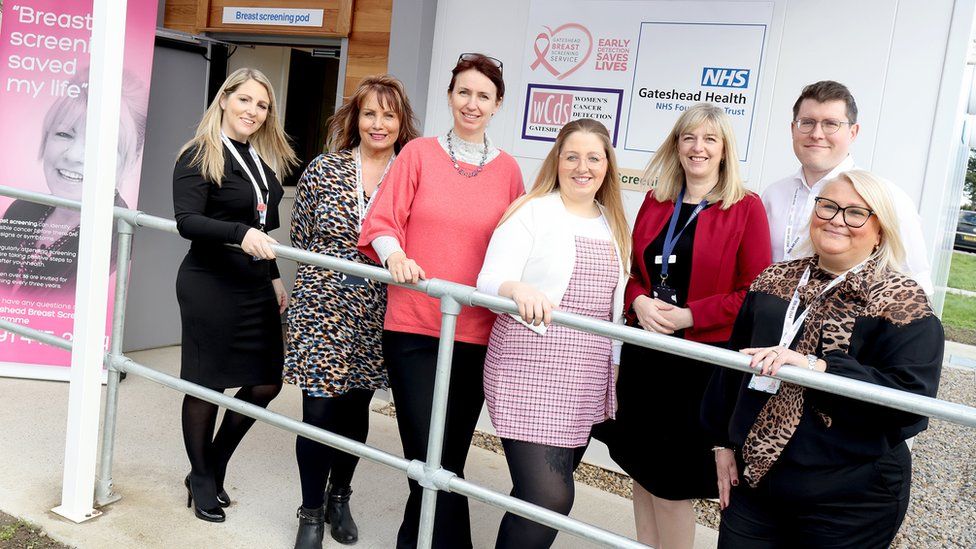文章管理 查看文章


A new breast-screening machine said to be the the first of its kind in Europe has opened in Gateshead.
The Pristina Pod at Queen Elizabeth Hospital uses a 3D mammography system to screen breast cancer patients.
Health bosses said it had been designed to be "more comfortable" and "ease anxiety and discomfort" for women as early cancer detection "saves lives".
NHS England funded the machine as part of efforts to tackle a screening backlog from the coronavirus pandemic.
Image source, Helen Smith Photography
The machine was installed in a new unit outside the hospital by GE Healthcare in February and has been used by its first patients.
Rebecca Smythe, who was 24 when she was diagnosed with breast cancer, urged women to get checked as soon as they have any concerns.
Mrs Smythe, who is now 32, said her husband noticed a lump in her breast but she did not think it was anything urgent so initially thought "I'll just leave it".
But after her husband "begged" her to go to the GP she did so and within two weeks she had been diagnosed with breast cancer.
"If I had left it a matter of weeks it probably would have been spread throughout my body," mother-of-three Mrs Smythe said, adding: "If I hadn't listened to my husband then I probably wouldn't be here today."
She said the new machine was more comfortable than its predecessors which should encourage women to get checked.
"If you are due a mammogram, don't hesitate," Mrs Smythe said.
Lead radiographer for breast imaging Joanne Brand said she was "thrilled" to have the pod, adding: "We are delighted to be the first in Europe to offer this facility and I look forward to seeing what the future holds for breast screening."
She told the BBC a mammogram was an "intimate procedure" which took a couple of minutes but staff aimed to make women as "comfortable as possible".
Ms Brand said: "We understand screening is an embarrassing thing but it is very important women come.
"Cancer is detected far sooner on a mammogram than if you wait and a lump does appear.
"Early detection saves lives."
Follow BBC North East & Cumbria on Twitter, Facebook and Instagram. Send your story ideas to northeastandcumbria@bbc.co.uk.
Related Topics